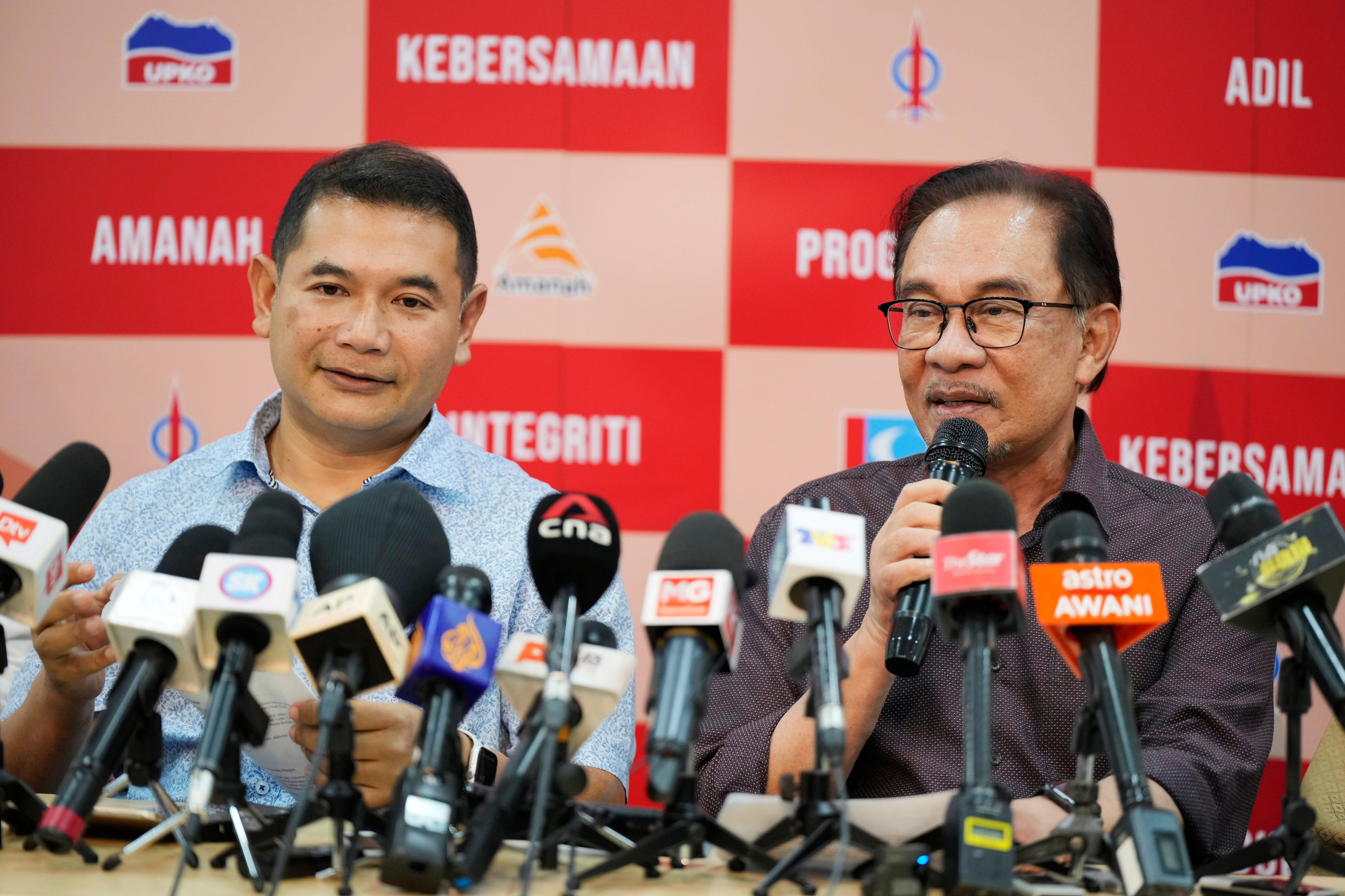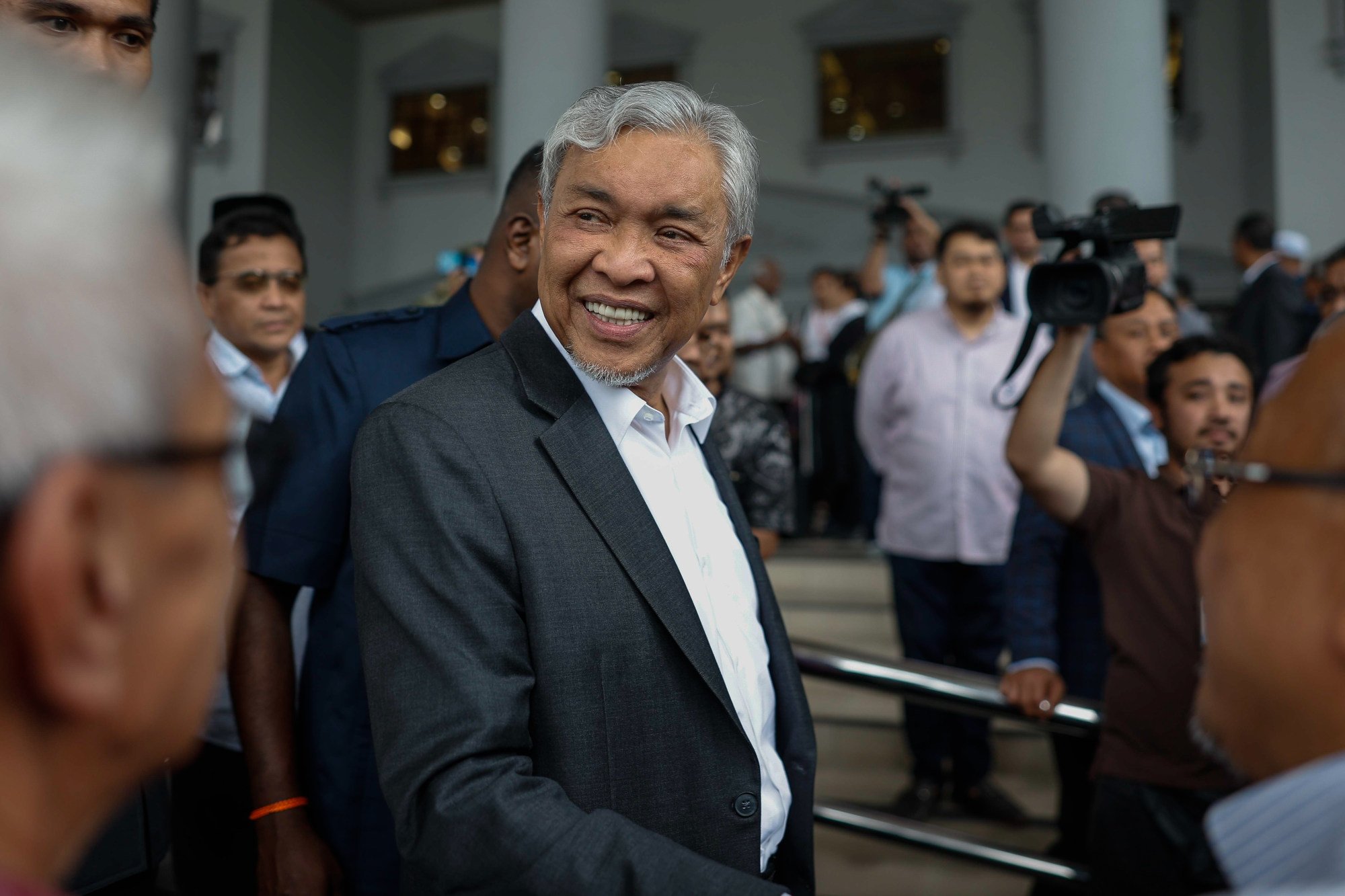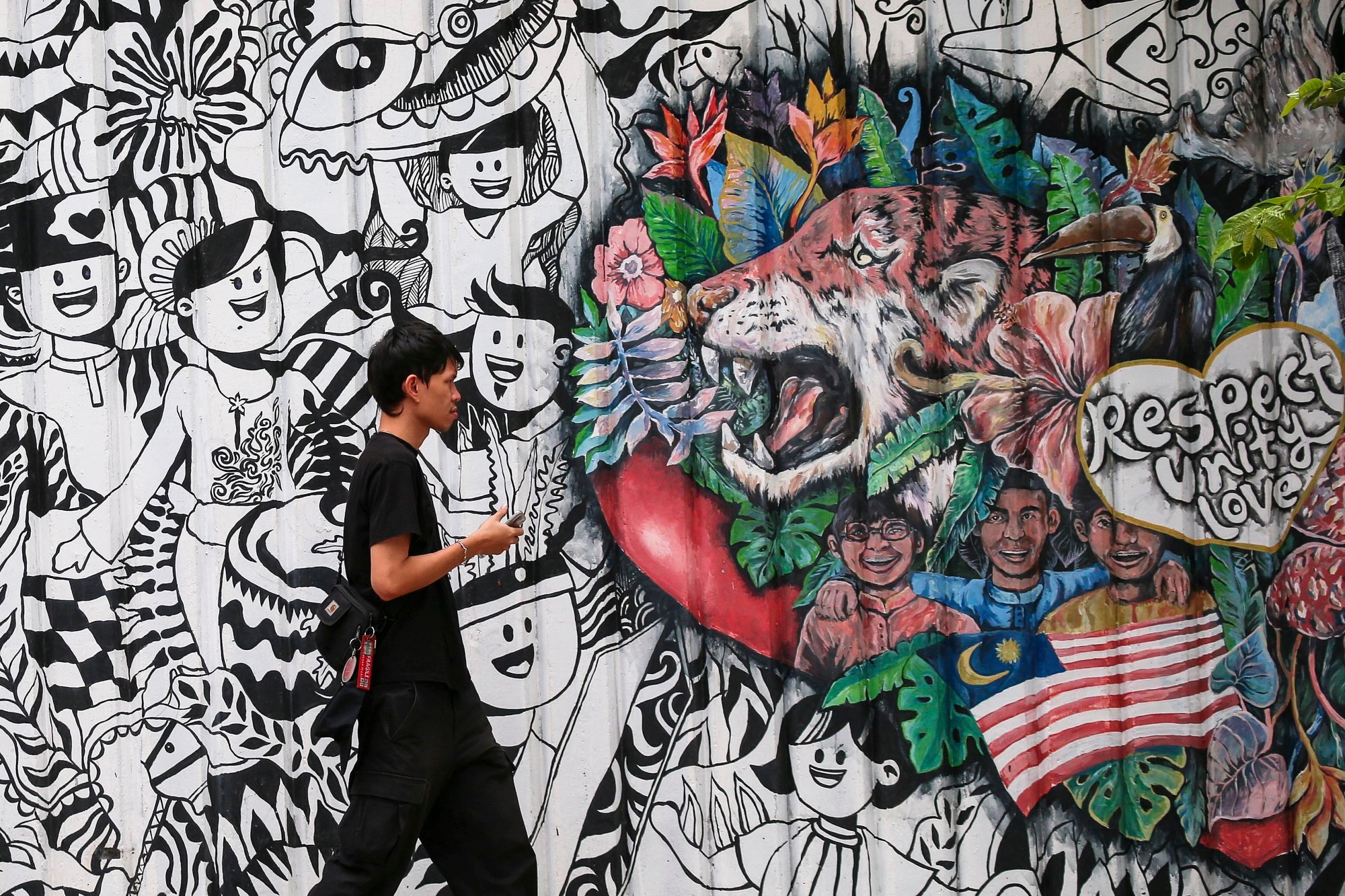No ‘confirmed second term’ for Malaysian PM Anwar, minister warns, as party rift widens
Economy Minister Rafizi Ramli says PKR has squandered its clean image, amid nepotism claims linked to moves to promote Anwar’s daughter

Malaysian Prime Minister Anwar Ibrahim risks losing the next general election if his focus drifts from the anti-corruption crusade that got him elected, a senior cabinet member has warned, as a rift widens inside the ruling party caused by allegations of nepotism linked to moves to promote Anwar’s eldest daughter.
Economy Minister Rafizi Ramli said the Parti Keadilan Rakyat (PKR) had squandered its clean image and warned that the prime minister risked facing a single term as he shed support across the country.
“I have discussed and tabled it to the PM and told him time and time again: do not take lightly the people’s perception on corruption because that is our core asset,” said Rafizi, who also holds the key post of PKR deputy president.
The next election is due in two years’ time.
“The truth is we are still far away from a confirmed second term for Anwar Ibrahim,” Rafizi added.

His comments follow a barely concealed split spurred by PKR’s push to appoint Nurul Izzah Anwar – the prime minister’s eldest daughter – as deputy president, sidelining Rafizi.
Nurul Izzah has dismissed accusations of nepotism as recycled smears against her father’s reform agenda, while insisting she is not interested in joining the government.
But experts speculate that the promotion to the senior party post – which will be decided by an internal vote later this month – is a bridgehead to the prime minister’s office.
Rafizi, who also runs the data analytics firm Invoke, said support for the party was eroding across Malaysia’s main ethnic communities who were not confident of their seriousness in tackling corruption, a core issue that previously toppled prime minister Najib Razak and the Barisan Nasional (BN) coalition after six decades in power.
After a 25-year struggle marked by imprisonment and vilification by BN, Anwar finally became prime minister in 2022 following a post-election realignment.
But according to Rafizi, internal polling now shows support for the coalition has plummeted.
“I spent my younger years exposing corruption scandals, 14 cases altogether, because that is our main asset,” he said. “It is no longer an asset but a burden.”

The party has already come under fire for a string of controversial decisions including Anwar’s appointment of Umno president Ahmad Zahid Hamidi as deputy prime minister in 2022, despite 47 corruption charges that were later dropped, fuelling speculation of political interference.
In March, Anwar also approved a 1.1 billion ringgit (US$230 million) bailout for Sapura Energy, a struggling oil and gas firm he had previously criticised when similar plans were floated by past administrations.
Despite attempts to court the conservative Malay-Muslim electorate, such as expanding Islamic religious authority and running culture wars aligned with Muslim sensitivities, Rafizi claimed that support for PH remained at just 27 per cent.
This is well below the 35 per cent threshold that is needed to retain power, according to Rafizi.
In contrast, the opposition Perikatan Nasional, anchored by the Islamist party PAS, still commands 48 per cent support among Malay voters.
“After two and a half years, we’re still struggling to win over the Malays,” Rafizi said.
Malays comprise more than 60 per cent of the electorate.

At the same time, Rafizi said support among ethnic Chinese and Indian voters had halved to just 31 per cent in April, with Anwar facing accusations of abandoning them amid his attempts to champion Malay causes.
While many remain wary of Anwar’s dynastic ambitions, Rafizi has also drawn criticism for threatening to resign from the cabinet if he loses the party contest, with the public accusing him of holding the country hostage at a time when Malaysia is bracing itself for the fallout of the US trade war.
As economy minister, Rafizi has led efforts to pivot the country away from its reliance on hydrocarbons towards renewable energy and data centres.
He is also overseeing the shift from blanket fuel subsidies to a targeted model, and is driving new policies aimed at raising private sector wages.
“He should not weaponise the ministership for the party election,” an X user said. “It’s a disservice to [his constituency], the nation, and everyone who are not PKR members.”